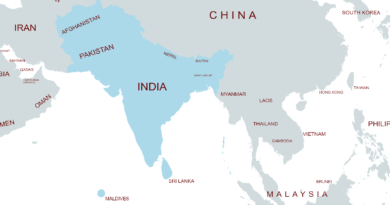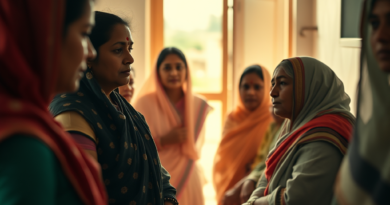Ayush Start up Challenge
Context:
The All India Institute of Ayurveda (AIIA) in association with Startup India has launched the ‘Ayush Start up Challenge’.
Contents
About Ayush Start up Challenge:
- All India Institute of Ayurveda (AIIA) in association with Start-up India has launched the AYUSH Start-up Challenge.
- It aims to encourage early stage startups for innovations in the field of alternative medicine and Ayurveda .
- Under this, a cash prize of Rs 1 lakh to the winner and Rs 50000 to the runner-up along with AIIA will be given. Incubation support will also be provided by
- There are three categories to participate in this-
- Ayush Food Innovation Solutions
- Ayush Biological-Equipment Solutions
- Ayush IT Solution
- It is known that A.I.A. Works under the Ministry of AYUSH .
AYUSH System of Medicine
AYUSH is the acronym of the medical systems that are being practiced in India such as Ayurveda, Yoga & Naturopathy, Unani, Siddha and Homeopathy. These systems are based on definite medical philosophies and represent a way of healthy living with established concepts on prevention of diseases and promotion of health. The basic approach of all these systems on health, disease and treatment are holistic.
Ministry of AYUSH had issued an advisory on various immunity enhancing steps from the time-tested approaches of Ayurveda. The advisory is reiterated again in these testing times to support the efforts of all as a measure towards enhancing one’s immunity.
Significance of AYUSH in India in current times:
- In the wake of the Covid 19 outbreak, entire mankind across the globe is suffering. Enhancing the body’s natural defence system (immunity) plays an important role in maintaining optimum health.
- Prevention is better than cure: While there is no medicine for COVID-19 as of now, it will be good to take preventive measures which boost our immunity in these times.
- The Ministry of AYUSH recommended some self-care guidelines for preventive health measures and boosting immunity with special reference to respiratory health. These are supported by Ayurvedic literature and scientific publications.
- Following the AYUSH ministry initiative many state governments also followed up with healthcare advice on traditional medicine solutions to enhance immunity and disease-resistance, which are particularly relevant against the backdrop of the Covid-19 pandemic.
- the Ministry of AYUSH has also proposed to include AYUSH solutions in the district level contingency plans being drawn up to contain COVID -19 in all the districts across the country.
- The Odisha State Government has decided to rope in AYUSH doctors to strengthen the frontline medical teams in combating Covid-19 in their respective areas of posting.
Potential of AYUSH:
- A number of initiatives to promote AYUSH have been recently announced.
- Creation of AYUSH wings in defence and railway hospitals.
- Providing soft loans and subsidies for the establishment of private AYUSH hospitals and clinics.
- Establishing institutes of excellence in teaching and research in AYUSH.
- 12,500 dedicated AYUSH health and wellness centers are planned to be set up under the Ayushman Bharat mission.
- AYUSH, represent a pluralistic and integrative scheme of health services. AYUSH can play an important role in realizing the dream of ‘New India’ by providing quality healthcare and medical care for its citizens. The ‘New India’ also needs to be a ‘Healthy India’ where its own traditional systems can play a significant role.
- With statistics repeatedly indicating that there is a severe shortage of doctors in India with a mere 80 doctors per lakh population. AYUSH provides a way to increase healthcare access
- AYUSH presents an opportunity to realize the potential of medical pluralism in the current environment where prevention is emphasized along with curative aspects.
- AYUSH industry may create 26 mn jobs by 2020 according to Government reports.
- Given the rising popularity of AYUSH and alternative medicine, AYUSH could help boost medical tourism in India.
- Ayush interests will be served far better if the government were to push for concerted research on this, with the gold standard of clinical trial/research—randomized, double-blind, placebo-controlled studies—or any other widely accepted standard of trial rigor, applying.
- The government even set up a task force to oversee Ayush research in the country in May 2020.
Challenges faced:
- Health professionals have often questioned the measures advised by Ayurveda, Unani and Homeopathic medicine to deal with serious illnesses.
- Non-integration into mainstream medicine: Our efforts to mainstream AYUSH medicine has been to regard that the major problem lies in the fact that there is a very less proportion of AYUSH in the present mix. Hence, the integration of AYUSH into the health-care system has been focused on having more AYUSH facilities or having them in the place where there aren’t any without worrying about the actual effectiveness of such a move.
- Status gap: The subservient status of AYUSH has been the major hurdle. AYUSH has been fraught with multiple issues like including dishonest practices and claims by some AYUSH practitioners leading to the ridicule of AYUSH treatments and procedures by sceptics. The mindless cosmeticisation and export promotion of AYUSH products has led to a bad perception of AYUSH.
- The isolationist approach goes against the cherished ideal of modern medicine to embrace concepts that are backed by evidence. In the case of traditional medicine, an isolationist attitude could deter scientific scrutiny and block some potential value addition.
- Quality standards of Medicines: Scientific validation of AYUSH has not progressed in spite of dedicated expenditure in past.
- Lack of human resources: Practitioners are moving away from traditional system for better opportunities
- The existing infrastructure remains under-utilized.
- The 2013 Shailaja Chandra report on the status of Indian medicine and folk healing, commissioned by the Ministry of Health and Family Welfare, noted several instances in States where National Rural Health Mission-recruited AYUSH physicians were the sole care providers in PHCs and called for the appropriate skilling of this cadre to meet the demand for acute and emergency care at the primary level.
- Competition with modern medicine:
- Dishonest practicesby most of the AYUSH practitioners makes allopathy look more trustworthy.
- Scepticism towardsAYUSH treatments and procedures by people, mainly the allopathic sector.
- Mindless cosmeticisationof AYUSH products in the name of natural-organic origin in comparison to the artificial allopathic products.
- More focus on the export promotionof AYUSH products to gain market attention.
- Lack of dedicated efforts: There is a sharp status gap between modern medicine and AYUSH and little has been done to harmonize both the sectors. Merely expanding AYUSH’s framework will only expand the present list of problems.
- Conflict of Interests: AYUSH lobby fears a loss of identity following such integration. The allopathic lobby alleges that standards of medical care would be diluted after the integration.
Way forward:
- It is important to gather scientific evidence for the safety and efficacy of AYUSH medicines and practices.
- Work towards capacity building and developing a critical mass of competent professionals in the AYUSH sector through quality education and training at national and international levels.
- True integration of traditional and modern systems is the need of the hour. This would require a concerted strategy for facilitating meaningful cross-learning and collaboration between the modern and traditional systems on equal terms.
- The Chinese experience of integrating Traditional Chinese Medicine with Western medicine makes for a good example.
- An Indian parallel could envision the integration of education, research, and practice of both systems at all levels. This can include training of AYUSH practitioners in modern medicine through curriculum changes and vice versa.
- Need to ensure substantial groundwork with respect to the prerequisites of an effective integration.
- Building a strong traditional medicine evidence corpus.
- Standardizing and regulating AYUSH practices and qualifications.
- Delineating the relative strengths, weaknesses, and role of each system in an integrated framework.
- Negotiating the philosophical and conceptual divergences between systems.
- Addressing the unique issues associated with research into AYUSH techniques.
- An integrated framework should create a middle path — fusing the two systems, while still permitting some autonomy for each.
- Accordingly, a medium- and long-term plan for seamless integration should be developed expeditiously in view of the massive drive for achieving universal health care already underway in the country and considering the vast potential of AYUSH to contribute to this cause.
| Source: Indian Express |
To push Ayush, the government must take a cue from China’s efforts on Traditional Chinese Medicine (TCM)—invest heavily to become an R&D leader itself and help design research protocols that have acceptance across systems of medicine. Perhaps, then, Ayush might get the boost that Tu Youyou’s medicine Nobel meant for TCM.
You can find many articles on SCHEMES (part of GS II) in our website. Go through these articles share with your friends and post your views in comment section.
Discover more from Simplified UPSC
Subscribe to get the latest posts sent to your email.



